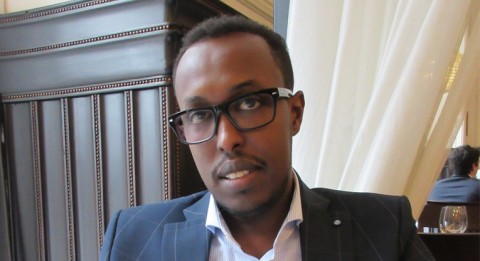Women and the youth hold the key to rebuilding Somalia
Finn Church Aid (FCA) interviewed two Somalian policy-makers, who participated in the first ever New Deal civil society conference. They wished that the special status of women and young people would be seen as a key to a better Somalia.
The New Deal conference, which concluded on the eve of Finnish Midsummer Festival on Thursday, 18 June in Helsinki, gathered together policy-makers and experts from around the world to discuss development cooperation in fragile states.
The goal was to involve funders, the local government and the civil society into supporting development in fragile states.
It is only two years since Somalia was declared the most fragile nation in the world, that is to say, the most failed state in the world. Although it passed South Sudan last year, but still remains at the bottom of the list.
The future is in women
Deqa Yasin who works as the Operations Manager of IIDA Women’s Development, an organisation that fights for the rights of women and children says that this is a critical period for Somalia in terms of gender equality.
“There is still time during the next four months to influence the constitution of Somalia so that the need for gender equality would be clearly acknowledged, not just in vague statement as is the case now. An obligatory minimum representation of at 30 % of either gender should be entrenched in the constitution. This will form a basis for its inclusion in the electoral and political parties laws. It is important to note that as of now all the five Commissioners of ICRIC that has been tasked with reviewing the constitution are male and no one has raised a finger on this anomaly ”, Deqa Yasin stresses. The Somalian constitution has so far silent on gender quota.
IIDA has been on the frontline to advocate for lasting peace in Somalia. In its entire programme, the rallying call has been to have sustainable peace; a good example is the research on what Islam actually says about the status of women. IIDA, realizing the significant impact Islam has on the progress of Somali women, held a training for women dubbed “Women’s Rights in Islam” whose theme was “Know Your Rights” where the priority for women to have the correct interpretation of their rights as provided for in Islam and the need their active participation in decision making and leadership was underscored.
According to Deqa Yasin, knowledge helps people to make informed decisions, and although we are not yet there eventually, there will be lasting peace. She noted that even though IIDA is an internationally funded and awarded cooperating partner of Finn Church Aid, it didn’t stop an anonymous party from murdering one of their own peace activists.
“Of course, the murderer has not been caught nor brought to book for his actions”, Deqa Yasin says.
The organisation has ample courage for advocacy, but courage alone isn’t enough, funds are also needed. That is why Deqa Yasin finds it important that, with cut backs on development cooperation funding looming, Finland should see the importance of gender equality for the future of Somalia.
“Lasting peace means that no one is shut out and everyone is included in the peace process – including women and children”, Deqa Yasin emphasises.
Or is it perhaps in the youth?
Mr. Abdihakim Yusuf Ali from the Somalian Ministry of Interior and Federal Affairs thinks young people are the country’s greatest resource.

Abdihakim Yusuf Ali thinks Finland should focus its development cooperation efforts on educating the Somalian youth. Photo Eriikka Käyhkö.
“70 % of Somalis are under 30 years of age. That means that old leaders are themselves a minority that only represents 20 % of the people. I have heard that, in Eritrea, Finn Church Aid supports the creation of a national innovation strategy and the development of a national innovation centre. This is exactly the sort of activity that is desperately needed in Somalia as well”, Ali envisions.
Ali himself works as a political adviser in the Ministry of Interior and Federal Affairs. He thinks Finland should focus its development cooperation more strongly on educating young Somalis – that is to say, the majority – rather than the “old” projects.
“The young want to live a similar to people in the west. Only through education can we count on a better future where we win the circles of poverty, violence, extremism and violent radicalisation. If Finland and Finn Church Aid are really interested in the future of Somalia, I am prepared, at any moment, to work in government to get this kind of an innovation centre opened!”
The centre would function as a guiding instrument in a country that really needs good ideas – perhaps even more urgently than Finland.
Deqa Yasin and Ali took part in an international conference organised by Finn Church Aid, the Ministry for Foreign Affairs of Finland, the United Nations Development Program (UNDP) and the Civil Society Platform for Peace building and State building (CSPPS).
The conference was the first of its kind focusing on the role of civil society in the New Deal – programme, which aims to secure peaceful development in fragile states.
IIDA is an NGO founded in 1991, working for the rights of women and children. It has supported marginalised women and children, rescued young people from armed activity and brought them to education, supported mentally ill and discriminated as well as sexually violated women and promoted inter-clan peace processes by including women in peace work. At the moment, IIDA is working on engendering upcoming legislations as the constitution is silent and past legislations have been gender blind and for this reason is working closely with members of parliament and the Ministry of Gender and Human Rights Development.
Text and photos: Eriikka Käyhkö